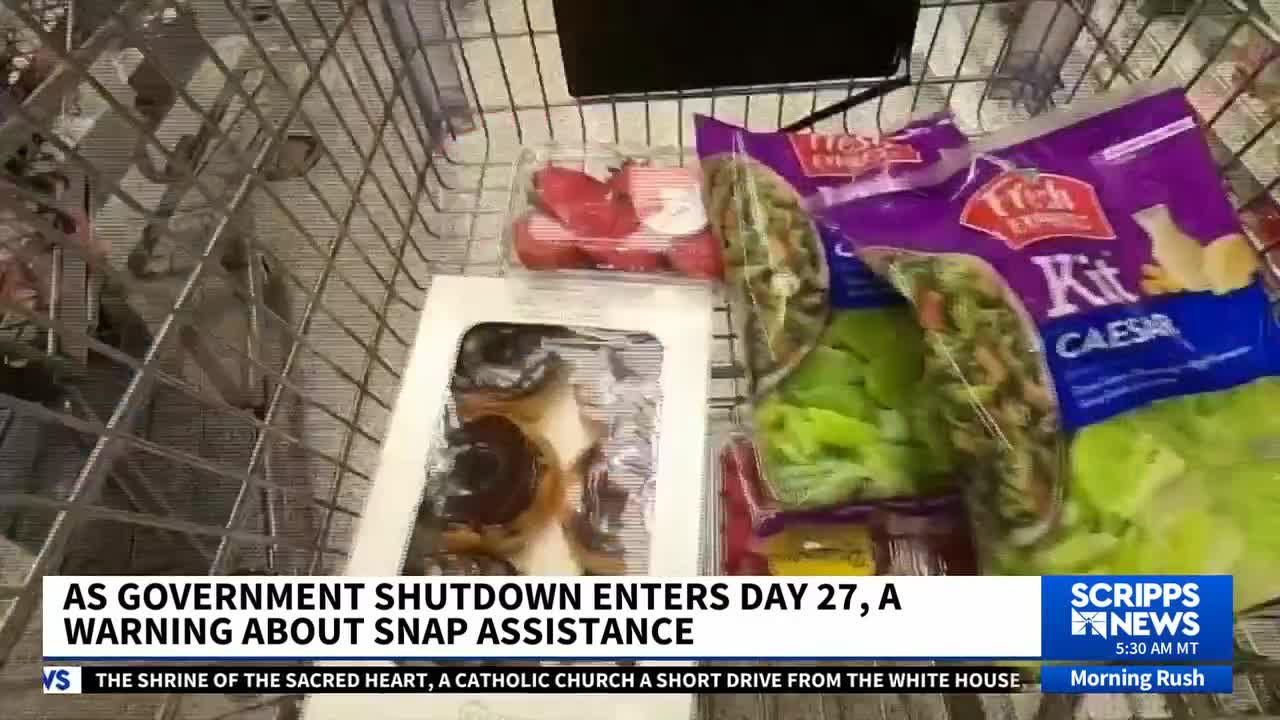The U.S. Department of Agriculture says federal food aid will no longer be distributed starting on Nov. 1 — saying the "well has run dry" and blaming Senate Democrats for the ongoing government shutdown.
"Senate Democrats have now voted 12 times to not fund the food stamp program, also known as the Supplemental Nutrition Assistance Program (SNAP)," a notice reads on the USDA website.
"At this time, there will be no benefits issued November 01," the agency added. "We are approaching an inflection point for Senate Democrats. They can continue to hold out for healthcare for illegal aliens and gender mutilation procedures or reopen the government so mothers, babies, and the most vulnerable among us can receive critical nutrition assistance."
Watch: SNAP benefits slated to halt
- ADDITIONAL REPORTING: SNAP benefits at risk, workers miss pay as shutdown continues
The Trump administration, meanwhile, is refusing to tap $5 billion in contingency funds to sustain SNAP benefits, saying the money is reserved for emergencies such as natural disasters.
Some states say they will try to keep SNAP benefits flowing, but the USDA warned they would not be reimbursed.
"There is no provision or allowance under current law for States to cover the cost of benefits and be reimbursed,” a USDA memo obtained by Scripps News states.
According to the Center on Budget and Policy Priorities, nearly 62% of SNAP recipients are families with children, and nearly 37% of beneficiaries are households with older adults or people with disabilities.
If SNAP benefits are halted, it could leave millions of Americans without critical food assistance.
- IN CASE YOU MISSED IT: USDA won’t use emergency funds to cover SNAP benefits, agency says
The government shutdown — which began on Oct. 1 — is now the second longest on record. At the center of the dispute is health care policy.
Republicans want to reopen the government first and debate health care later, while Democrats are demanding concessions tied to expiring Affordable Care Act subsidies.
Democrats argue that without action, millions of Americans could face higher insurance premiums in the coming months.




